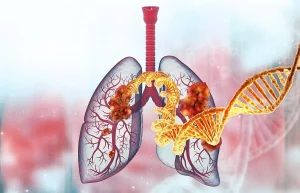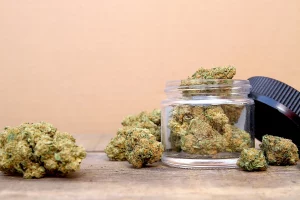Dozens of drugs are being investigated for their value in treating COVID-19, as desperation drives doctors and researchers to look for something that could battle the virus and save lives.
“There are really no FDA-approved medications for the treatment of COVID-19, unfortunately,” said Ashley Barlow, a pharmacy resident with the University of Maryland Medical Center in Baltimore. “We’re doing the best we can to try and ramp up studies, but since we’re doing it in such a quick period of time there are a lot of flaws we have to take into consideration.”
The COVID-19 drugs being tried and tested fall into two general categories, explained Dr. Rajesh Gandhi, director of HIV clinical services and education at Massachusetts General Hospital in Boston:
- Antivirals aimed at limiting the spread of the coronavirus inside the bodies of infected people.
- Immune system medications that limit the damage the body does to itself while fighting off the coronavirus.
“There are drugs we believe can help pull people through the natural evolution of this infection and can really make a difference,” Gandhi said. “Right now, the jury is still out on some of these things that have been proposed. That’s why we need to have clinical trials that will provide an answer.”
Remdesivir
Many of the drugs proposed to treat COVID-19 are already approved for other conditions, and can be put into immediate off-label use. That’s not the case with one of the most promising potential therapies, an IV drug called remdesivir, originally developed to treat Ebola and MERS (Middle East respiratory syndrome).
“Remdesivir is not an approved drug, so the only way you can get it is if you are in a clinical trial or through a compassionate use program,” Gandhi noted.
The drug attacks the genetic code of the COVID-19 coronavirus, hampering its ability to replicate, explained Barlow, lead author of a review of potential coronavirus therapies published recently in the journal Pharmacotherapy.
Early studies in small groups have shown benefit in patients, but doctors are still waiting on results from larger clinical trials to verify those findings, Barlow and Gandhi said.
“I would say in the next month we will probably get an answer on remdesivir,” Gandhi said, adding that even partial benefit would be a good result.
“Even if it doesn’t work 100% of the time, then you have something to build upon,” Gandhi explained. For example, remdesivir could be added to a cocktail of drugs, much in the way that researchers developed an effective therapy for HIV, the virus that causes AIDS.
Chloroquine and hydroxychloroquine
These anti-malarial drugs have been touted by President Donald Trump and others as one of the great hopes for COVID-19 treatment.
But these drugs have already laid an egg in several major studies, Barlow said. Clinical trials are ongoing for the two drugs, but researchers aren’t holding out much hope.
“We were looking for a promising drug, and unfortunately hydroxychloroquine ends up being not so promising as we originally thought,” Barlow said.
One nationwide study focusing on its use in U.S. veterans hospitals found that 28% of patients treated with hydroxychloroquine died versus 11% of those who didn’t get the drug, according to media reports on Tuesday.
Even before these results, doctors had already started turning away from the drugs, Gandhi said.
“A few weeks ago, when it really started getting intense here in Boston, we were using hydroxychloroquine more than we are now,” Gandhi said. “The waters have remained very muddy. It’s very unclear whether it’s been beneficial, and there are more reports of toxicity.”
Tocilizumab/baricitinib
These immune system-modulating drugs originally were developed to treat rheumatoid arthritis and other inflammatory diseases, Barlow said.
Researchers think they could help COVID-19 patients because the coronavirus appears to trigger an overactive immune response in some people, doing a lot of damage to organs and increasing the risk of death, Barlow and Gandhi said.
“They block one of the alarm bells of the immune system, and try to keep the immune response under control,” Gandhi said, comparing the response to the virus as “when there’s a fire and the fire’s been put out, but the firemen keep trying to put it out.”
This “cytokine storm” can fill lungs with fluid, promote a high fever, or drop blood pressure to dangerously low levels, Barlow said.
Clinical trials for tocilizumab and baricitinib are either underway or in preparation, experts said.
Ribavirin
This broad-spectrum antiviral drug, formerly used to treat hepatitis, is being tried as a COVID-19 therapy and really shouldn’t, Barlow said.
The drug inhibits viral replication by interfering with genetic synthesis, but comes with a host of dangerous side effects.
“It is considered a hazardous drug,” Barlow said. “For us as pharmacists, it’s kind of scary to see people use it because of the significant adverse effects that come with it.”
Ribavirin’s inhaled formulation, for example, can be toxic to fetuses and is not indicated either for pregnant women or their male partners, Barlow and her colleagues said. The drug also can cause anemia and low blood levels of calcium and magnesium, and has the potential to interact dangerously with immune suppression therapies.
Gandhi said, “I haven’t seen a ton of really exciting data” supporting ribavirin’s use.
Lopinavir/ritonavir/nelfinavir
These drugs were all developed as ways to interfere with the viral replication of HIV, and “in MERS and SARS [severe acute respiratory syndrome] — the other human coronaviruses before COVID-19 — there was some interest in lopinavir/ritonavir,” Gandhi said.
Early randomized trials out of China have not shown any particular benefit, but the World Health Organization and others are still including one or more of the drugs in ongoing COVID-19 clinical trials, Gandhi said.
But, Barlow added, “I think a lot of institutions have stopped using this agent because of the lack of benefit seen.”
Interferon alpha
This drug is one of the older antiviral agents, examined as a means of treating hepatitis and some cancers. It’s based on a protein your own body makes to direct immune response, Gandhi said.
“It’s a natural antiviral that our bodies use, but it’s given as a medication to go beyond what our bodies make,” Gandhi said.
However, there’s little laboratory evidence that interferon alpha is effective in treating either SARS or MERS, Barlow and her colleagues noted.
Nonetheless, ongoing studies are assessing whether interferon alpha used in combination with ribavirin could help treat COVID-19 patients, the experts said.
Interferon alpha generally isn’t used to treat chronic infections like hepatitis because it can cause depression and flu-like symptoms, Gandhi said. However, it could be applied to short-lived infections like COVID-19 if the evidence warrants its use.
“It’s one thing to have flu-like symptoms and depression for a year, it’s another to have it for a week,” Gandhi said.
Nitazoxanide
This drug is approved by the U.S. Food and Drug Administration to treat diarrhea caused by Giardia parasites, and it has been found to also act against cryptosporidium parasites and some bacteria, Barlow and her colleagues said.
The medication could potentially inhibit the expression of proteins found on the surface of the COVID-19 coronavirus that allow the virus to invade human cells, Barlow said.
Nitazoxanide studies in the lab and with animals have shown that the drug can reduce infections of MERS and other coronaviruses. However, a study published late last year in the journal Clinical Infectious Diseases found the drug did not improve coronavirus patients’ outcomes.
“The history of medicine is just littered with things that looked good in test tubes or in animals, but don’t work well in humans,” Gandhi said of nitazoxanide.
Arbidol/favipiravir/baloxavir
These drugs, approved to treat flu in other nations, are being studied as emerging potential therapies for COVID-19, Barlow and her colleagues said.
Favipiravir is being tested in a clinical trial in the United States, Gandhi said, while other countries are testing the other drugs for their potential in fighting the new coronavirus.
The drugs all work by blocking either the virus’ ability to replicate or to enter human cells.
“That is an interesting drug,” Gandhi said of favipiravir. “I think it’s well worth studying.”
More information
The U.S. Centers for Disease Control and Prevention has more about COVID-19.
Source: HealthDay
Copyright © 2025 HealthDay. All rights reserved.

















